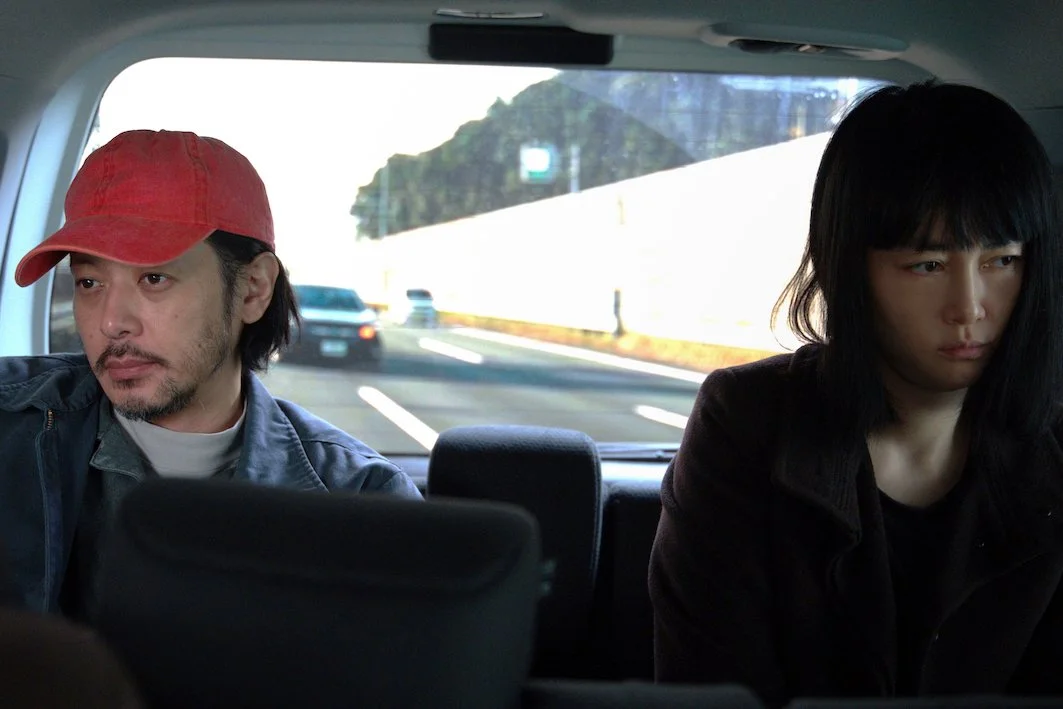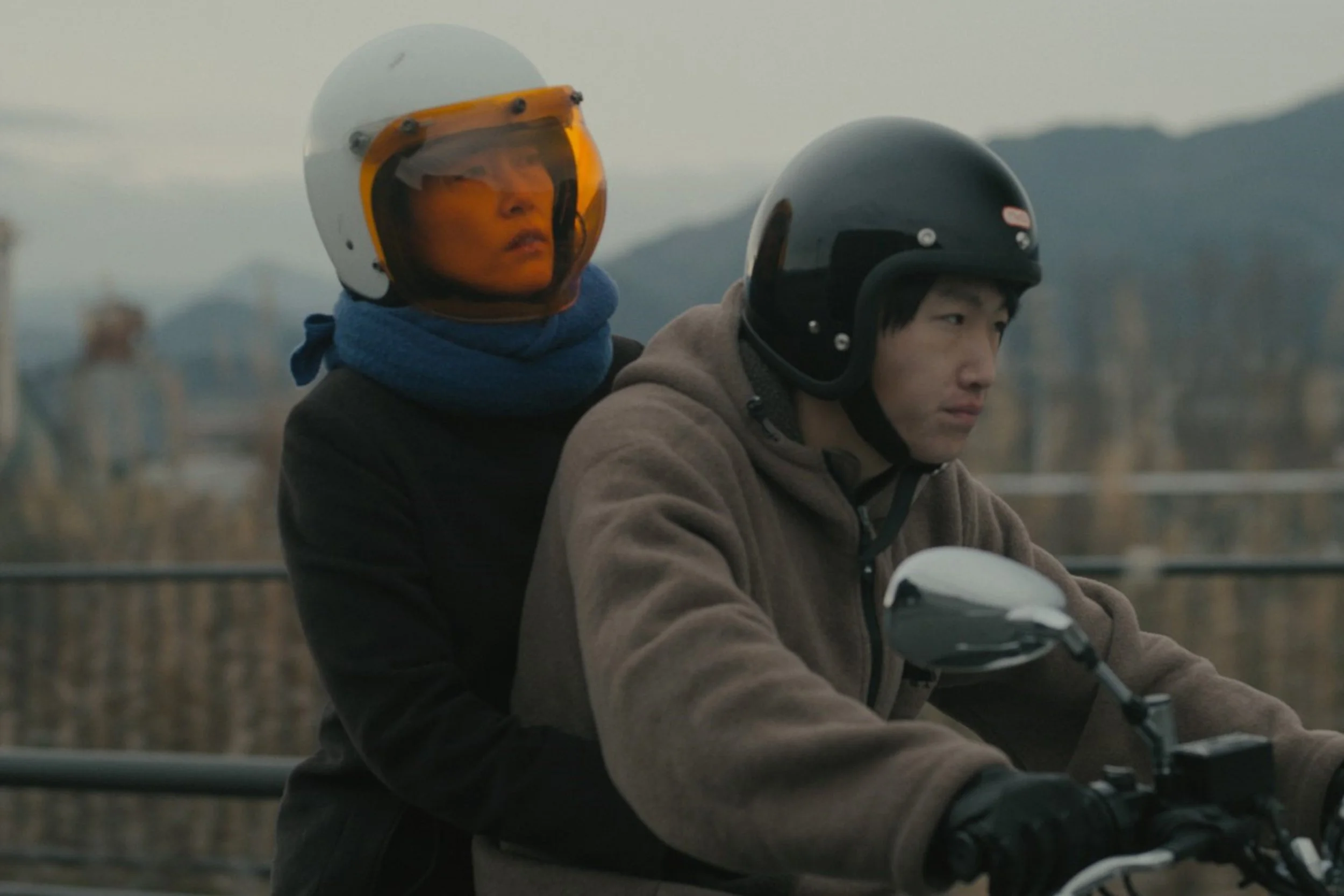Road Wise
Kazuyoshi Kumakiri makes us mostly forget his last film, thanks to a committed AF Rinko Kikuchi performance.
Yoko
Director: Kazuyoshi Kumakiri • Writers: Kosuke Muroi, Namiko So
Starring: Rinko Kikuchi, Pistol Takehara, Ai Mikami, Asuka Kurosawa, Joe Odagiri
Japan • 1hr 52mins
Opens Hong Kong July 18 • IIB
Grade: B
Let’s get a few things out of the way. Yes, the central conceit, or the mechanics, or the inciting incident, whatever you want to call it, in Kosuke Muroi and Namiko So’s script that sets the title character on her road trip in Yoko | 658km、陽子の旅 is utterly ridiculous. If your phone is busted and your wallet goes off in a car without you and you’re at a Japanese highway rest stop with only a tiny bit of change, chances are you’re going to find a way out of the mess – especially if you’re like Yoko (Rinko Kikuchi, Pacific Rim, Invasion) and you seem to know everyone’s phone number from memory. Even though you’re “estranged” from your family. Second, if your ride Home Alones your ass, they’re likely to notice and come back for you. Sit. And finally, can we please cease and desist with the Japanese Woman Stands Looking Up At Falling Snow imagery? Great, thanks, appreciate it.
That’s a bit nit-picky, but those illogical details can really stick in my craw, and it makes it difficult to find an entry point into Kazuyoshi Kumakiri’s otherwise affecting follow-up to his gawdawful, similarly illogical #Manhole. At least at first, because fortunately for Kumakiri in reuniting with Oscar-nominee Kikuchi (for Babel) after 2001’s Hole it the Sky he has an actor that effortlessly puts a relatable face on Japan’s Lost Decade generation and the crushing social disconnection of the hikikomori. Kikuchi practically puts Yoko on her back and carries the film to whatever insights it reveals.
Yoko is a thoroughly modern shut-in, living in Tokyo and working somewhat ironically as online support for some kind of faceless tech service. She landed in Tokyo from her hometown way up north in Aomori, the last stop before Hokkaido, over 20 years earlier with big ambitions and dreams, and created a rift with her father for them. Accomplishing absolutely nothing in the two decades since, Yoko let the rift get wider and wider until it became an un-leap-able chasm. She rarely goes out, she communicates even less. When her cousin Shigeru (Pistol Takehara, Threads: Our Tapestry of Love, Kumakiri’s Sketches of Kaitan City) shows up on her doorstep to tell Yoko her dad has died and he’s there to drive her up to Aomori for the funeral, she either doesn’t know or is unable to express what she’s feeling. She wrestles with these emotions, her part in father and daughter’s estrangement and flirts with reconnecting herself to the world on the trip to Aomori. Thing is, she doesn’t ponder these things with the eminently patient and accepting Shigeru. They get separated at the first highway rest stop and Yoko has to hitch the rest of the way. Buying into Yoko’s journey and her reconciliations relies on buying into believing she’d be forced to hitchhike the 658 kilometres – through the 3/11 Tohoku disaster zone, no less (wow, that’s on the nose). If you can, you’re good to go.
Yoko is by definition a picaresque, with Kumakiri latching Yoko onto drivers that for the most part represent some stage of her life, as the spectre of her father (Joe Odagiri, The Moon) lingers in the background, forcing her to confront him, herself, and her failings. The road metaphor is strong with Yoko; DP Taku Kobayashi’s anonymous grey road cafés and endless, numbing highways add to it, and Kikuchi crushes it in her performance. She rescues the film from falling into overly-emotional slog territory and is never tempted into a Big Oscar Moment. Her first ride comes with a chatty, divorced single mother (Asuka Kurosawa) who takes advantage of Yoko’s stilted silence to vent, and who might stir regret in Yoko for the kind of life she never got a chance to try. That woman drops her at another station where she meets a younger version of herself (Ai Mikami), the one that was still fearless. And a sweet, semi-retired couple living near Sendai, the Kinoshitas (Ken Yoshizawa and Jun Fubuki), remind her that everyone has scars, some of them visible on the land. Yoko’s thousand-yard stare during an, um, encounter with a predictably pervy salaryman (Kenta Hamano) shows us just how withdrawn from the world Yoko is, and demonstrates why she might want to stay that way – as well as a modest deconstruction of contemporary concepts of power and consent (a theme that seems to be gaining traction). But in the end this is a road movie about healing thyself, and Yoko’s issues with her father never rise above a sketch, which takes the heft out of the cathartic, reflective assessment she lays on her penultimate ride, as well as the eventual welcome at her destination. Where she gazes up at the snow. Dammit. — DEK



